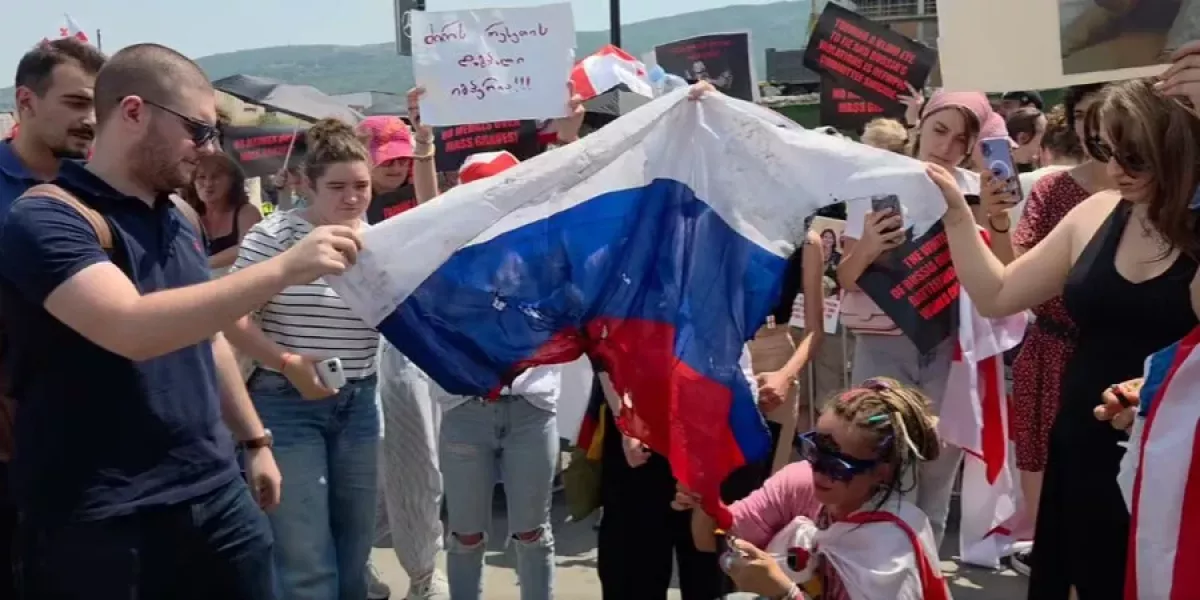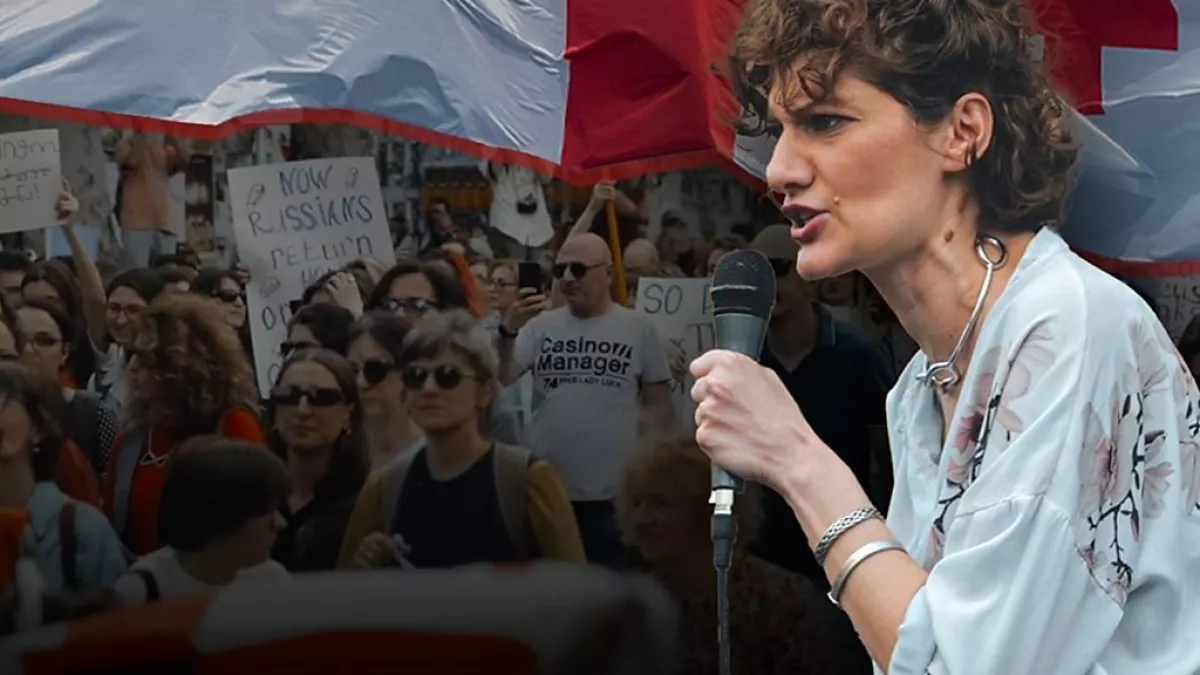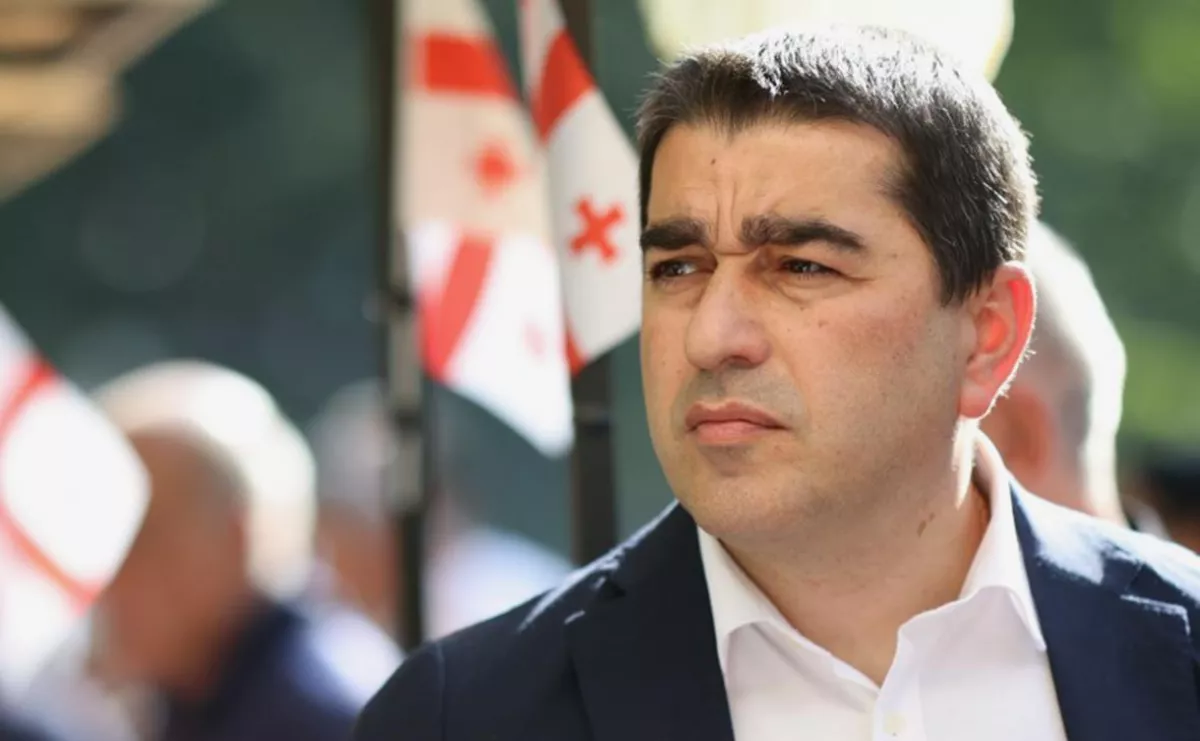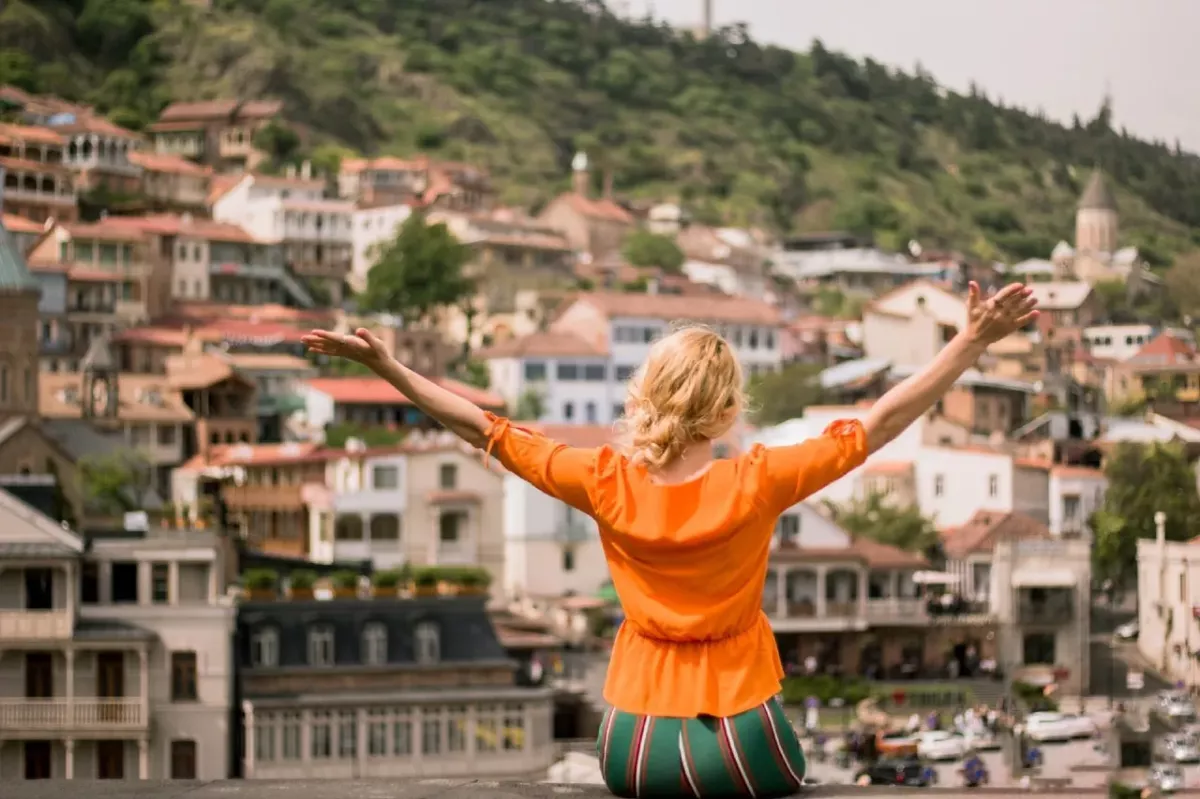EU and the bet on "pro-European" xenophobia in Georgia
It appears that Georgia’s pro-Western opposition has opted for a peculiar form of “pro-European xenophobia” directed against Russians and Russian citizens. In the early hours of July 27, 2025, the opposition organised a protest in Tbilisi against the participation of Russian athletes in the Fencing World Championship. Demonstrators gathered outside the hotel where the Russian fencers were staying, brandishing offensive banners, setting off firecrackers, and burning the Russian flag.

Although the Russian athletes competed under a neutral flag, the protesters claimed that some of them were allegedly “trusted agents of Russian President Vladimir Putin,” and that “17 out of the 25 Russian athletes who arrived for the championship hold military ranks.” However, under Russia’s universal conscription system, any individual registered for military service formally holds a rank—something that does not imply active duty.
The organisers portrayed the arrival of the Russian athletes as a kind of “new invasion of Russian troops into Georgia.” The protest took place under the slogan: “17 Russian soldiers on the homeland of Antsukhelidze”—referring to the Georgian soldier who died in captivity during the 2008 war.
The Russian Federation Interests Section at the Embassy of Switzerland responded to the protest against the Russian athletes’ participation in the championship. The protest was described as a “Russophobic stunt,” and the demonstrators as “politically motivated individuals.” The statement expressed hope that the Georgian authorities would ensure “fair, discrimination-free, and depoliticised competition conditions.”

The incitement of xenophobia has been eagerly taken up by representatives of pro-Western NGOs as well. Feminist and founder of the NGO Sapari, Baia Pataraia, for instance, took to social media to accuse the authorities of allegedly “deliberately bringing in Russian soldiers.”
The timing of the protest was also no coincidence—August 8 marks another anniversary of the 2008 war. The opposition’s calculation is clear: to provoke a scandal by humiliating Russia and its citizens in order to gain international resonance and trigger a reaction from Moscow.
It is important to remember that within Russia itself, against the backdrop of the protracted war in Ukraine, “patriotic hardliners” have become more active, reviving their “we can do it again” rhetoric. These circles regularly cite the “victory” of a nuclear superpower over tiny Georgia in 2008. The Georgian opposition’s actions against Russian citizens may well give these forces grounds to demand a “repeat” invasion. This directly aids those who aim to open a “second front” against Russia in Georgia—while simultaneously disrupting key transit routes across the South Caucasus.
Due to the new tactics adopted by the pro-Western opposition, the Georgian authorities find themselves in a difficult position. Such actions targeting ethnic Russians and Russian citizens risk damaging the flow of tourism—and consequently, the national economy. This, it seems, is also part of the opposition’s calculation: Georgia’s economic growth—particularly when contrasted with stagnation in the coveted European Union—bolsters the ruling Georgian Dream party, which has suspended EU accession talks.
On the other hand, any government attempt to curb xenophobic provocations is likely to be portrayed as “defending Russia’s interests” or even as “repression against patriots.”
Anti-Russian rhetoric will likely become the main tool for mobilising protest sentiment ahead of the local elections in October 2025.
There are growing reports that opposition activists are being instructed to carry out provocations against Russian-speaking individuals, Russian citizens, and people with “Slavic” appearance. The goal is clear: to provoke incidents that law enforcement agencies will be obliged to respond to—giving the opposition grounds to accuse the government of “supporting Russian occupiers” and to escalate its protest narrative.
Yet xenophobia poses a danger to Georgia itself. Today, the attacks target Russians—tomorrow they may target other ethnic groups, potentially leading to internal destabilisation across the country.

Georgian Parliament Speaker Shalva Papuashvili responded to the opposition’s provocations and Baia Pataraia’s post, directly accusing the opposition and the EU Delegation of inciting what he called “pro-European xenophobia” aimed at ethnic Russians and Slavs in general.
“The goal of this new wave of the so-called pro-European xenophobia is to incite hatred and violence. As expected, the EU Embassy will neither condemn nor distance itself from the xenophobic rhetoric promoted by the very groups it funds.
Yes, this is xenophobia, funded and encouraged by the EU Embassy. The fact that ‘Russia is waging war’ does not justify targeting individuals based on nationality.
Many nations have waged wars, past and present, but this gives no one the moral right to turn national identity into a target for hatred.
This reflects our Georgian worldview, and it should have reflected a European one as well, at least for the past 80 years. Otherwise, given the wars we’ve faced, Georgia could have become a nation consumed by hatred, which would have made our survival through the millennia impossible.
This is why these so-called NGOs feel alien to Georgian society. The hostility they promote contradicts our national values.
We remember their xenophobic campaign in 2022, when a woman was attacked on Chavchavadze Avenue simply because she looked Slavic, and then it was revealed that she had lived in Georgia for years,” Papuashvili wrote on social media, commenting on Baia Pataraia’s post.
Likely, the attempts to play the “anti-Russian xenophobia card” in Georgia will continue. However, the majority of Georgians remain restrained in their attitude toward such opposition actions.

Especially now, at the height of the tourist season—when many Georgian families depend on visitors from Russia—such provocations are particularly damaging.
The Georgian public, by and large, makes a clear distinction between the Kremlin’s policies and ordinary Russian citizens. On social media, opposition supporters are rightly reminded that it was none other than Mikheil Saakashvili who, shortly after the 2008 war, began promoting the idea of attracting Russian tourists to Georgia. In this context, accusations from his allies in the United National Movement against Georgian Dream for allegedly “not preventing” Russians from entering the country appear, at the very least, inconsistent.
By Vladimir Tskhvediani, Georgia, exclusively for Caliber.Az








